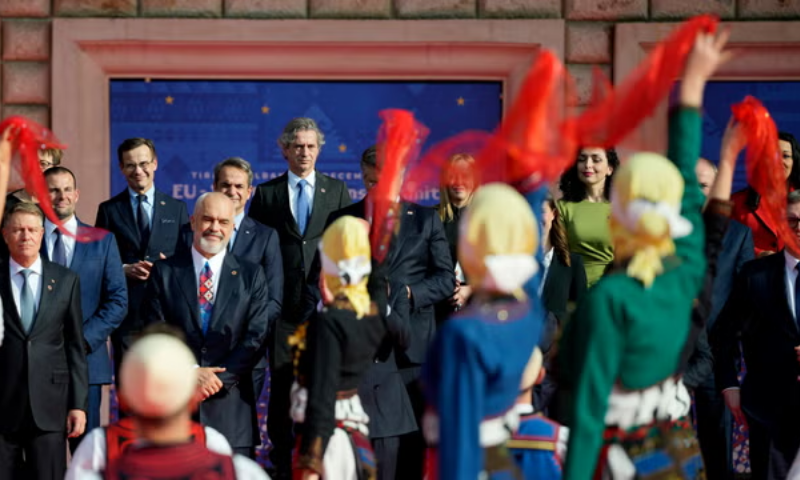TIRANA, Albania: In a significant gathering, leaders from the European Union (EU) and the Western Balkans convened in Albania’s capital, Tirana, for a summit on Monday. The focus of this annual meeting, known as the Berlin Process, centered on the integration of Western Balkan nations into a cohesive market and their strides toward green and digital transformations. The countries within the region—Albania, Bosnia, Kosovo, Montenegro, North Macedonia, and Serbia—were at the forefront of discussions.
Key figures present at the summit included European Commission President Ursula von der Leyen, European Council President Charles Michel, German Chancellor Olaf Scholz, and French President Emmanuel Macron. The six Western Balkan nations find themselves at varying stages of integration into the EU. Serbia and Montenegro initiated membership negotiations a few years ago, with Albania and Macedonia following suit last year. Bosnia and Kosovo have taken the initial steps toward the integration process.
The ongoing conflict in Ukraine involving Russia has propelled the integration of the Western Balkans into the EU to the forefront of the 27-nation bloc’s agenda. The EU has embarked on revitalizing the entire enlargement process, which had encountered a stalemate since 2013 when Croatia became the last country to join.
Reforming their economies and political institutions has been a prerequisite set by the EU for Western Balkan nations seeking to become members. Von der Leyen hinted at a growth plan for the Western Balkan countries during the summit. She unveiled the intent to open new trade routes in seven specific areas of the EU’s common market for Balkan countries. These initiatives necessitate swift reforms, supplemented by investments.
Read Also: EU Calls Video-Summit to Discuss Israel-Palestine War
However, an enduring dispute between Serbia and Kosovo—the latter declaring independence from Serbia in 2008—remains a pressing concern for the EU. A recent shootout between masked Serb gunmen and Kosovo police escalated tensions, temporarily suspending the EU-facilitated dialogue aimed at normalizing their relations.
EU officials have urged the Balkan countries to unite and transcend regional conflicts, particularly in light of the conflict in Ukraine instigated by Russia.
The landmark decision to host the summit in a non-EU member country reflects the paramount importance of the event. The historic gathering occurred at the iconic Pyramid in Tirana, a monument constructed in 1988 as a posthumous museum for Albania’s communist-era leader, Enver Hoxha.























